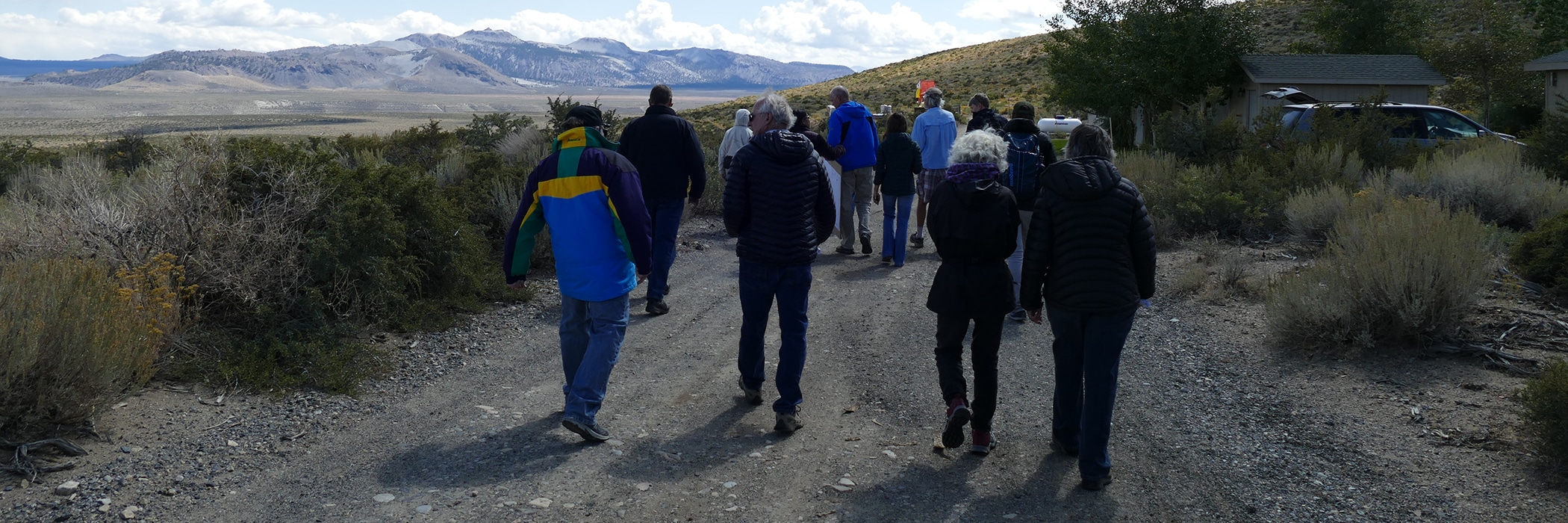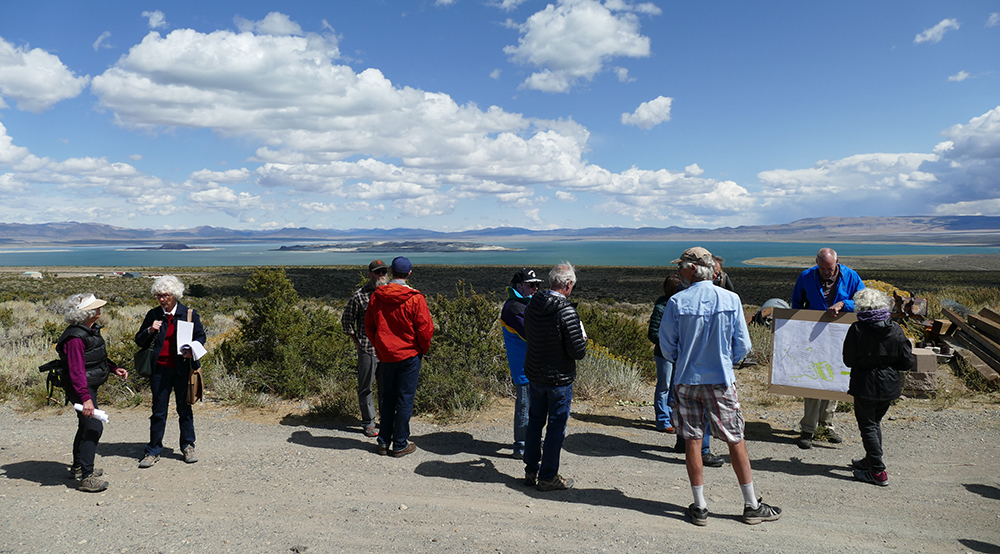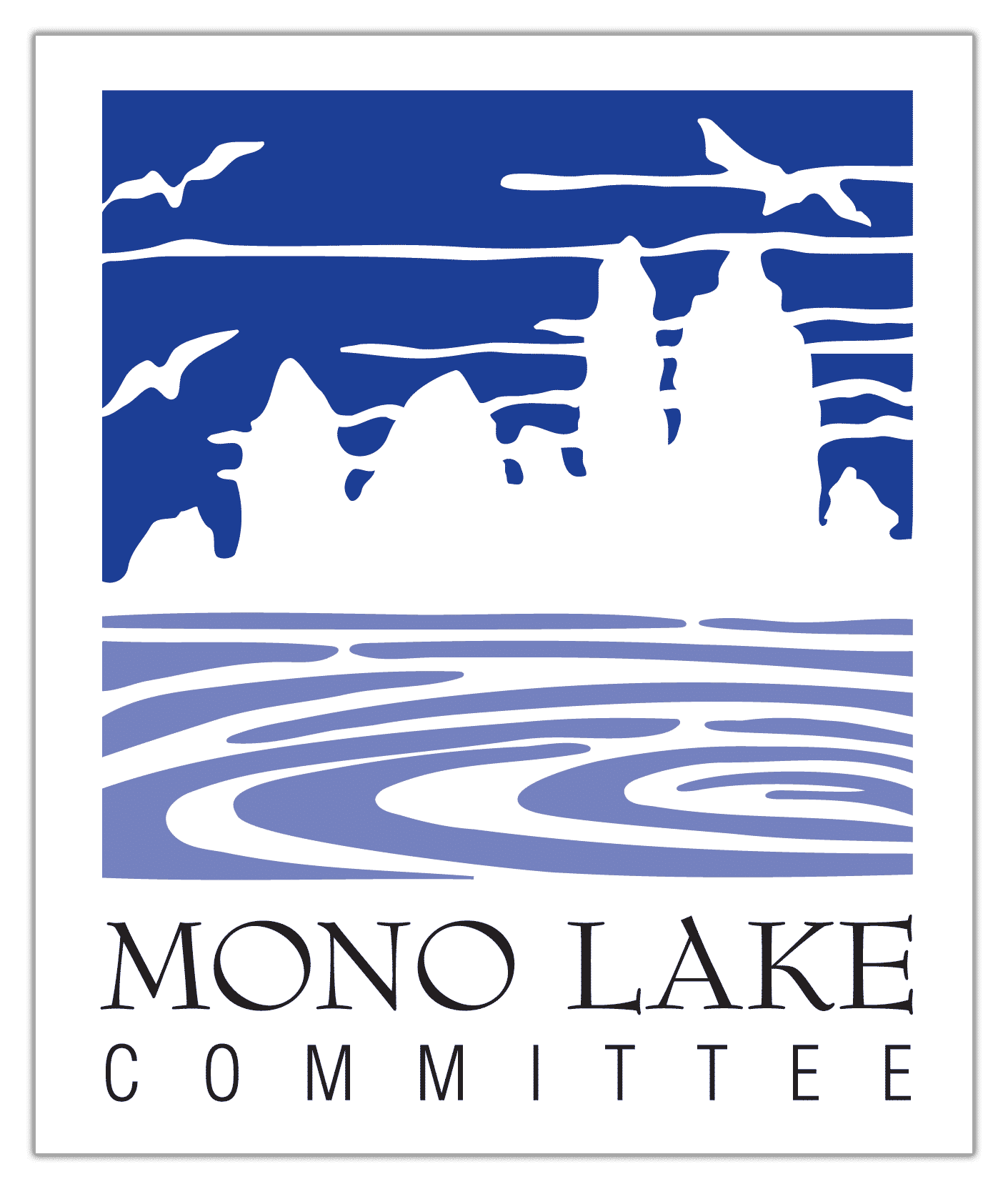
The largest project of its kind ever proposed in unincorporated Mono County, the Tioga Inn project final decision continues on, yet again, to an uncertain date. The Mono County Board of Supervisors adjourned the latest hearing last week without making a decision on the project.
The developer advocated for the most recent “Alternative #7 – Hybrid Plan,” along with other last-minute project changes, and the public expressed overwhelming opposition and insightful and relevant comments regarding project impacts, hydrology questions, and CEQA concerns. Including the Planning Commission meeting last April, the August 6 hearing was the third time that the local community and the public had expressed consistent and near-universal opposition to the project.
There was no majority interest from the four voting Supervisors to outright deny the project after the latest round of public opposition and project changes. Instead, the Supervisors asked detailed questions and gathered additional information and clarifications regarding the project.
Exhaustive process, uncertain next date
After this most recent marathon Zoom hearing, the Supervisors adjourned with the intent to see more precise site plans regarding the new open development zones proposed with the Hybrid Plan. Many other project details have yet to be discussed in detail, including details regarding site screening, the lack of pedestrian and cyclist connectivity with Lee Vining (despite potential feasibility), and the very real challenge for the Lee Vining Volunteer Fire Department to serve a project that essentially creates a new town site.
The previous special Board meeting on June 29–30 gave clear direction to the developer to address specific project issues. By the end of August 6, the Supervisors had not finished investigating the latest project alternative to see if those issues had been sufficiently addressed. As of today, August 14, a future hearing date and continuation of the process has not been set.

Public comment has made a difference
If you have tracked this project and commented, thank you. Comments have made a difference and have resulted in small steps toward addressing visual impacts. Frustratingly, the project has yet to achieve sufficient mitigation, and it is disappointing that overwhelming public opposition does not necessarily stop projects with privatized benefits and social costs. Public opposition has, at the very least, pushed the developer and Mono County staff to consider modifications that would have otherwise never been incorporated.
Why this matters
The Mono Lake Committee does not typically engage in development projects, but this one impacts Mono Lake, plain and simple.
Mono Lake is among the natural wonders of the world, loved by millions. The California Supreme Court affirmed Mono Lake’s scenic value in its landmark 1983 Public Trust decision. Just as Los Angeles’ excessive water diversions imperiled the lake’s recreational and scenic uses, so too does a major commercial development that brings significant, adverse visual impacts to future visitors. Approving a project that impairs Mono Lake’s scenic value and diminishes the visitor experience is, by default, granting permission to erode the Public Trust.
The Tioga Inn project also carries a significant public safety impact. Without a safe pedestrian access route linking the future Tioga Inn residential and hotel complex with Lee Vining, kids, residents, and visitors moving back and forth between the two sites are exposed to busy highway traffic along Highways 395 and 120. The potential for upwards of three hundred new residents, including kids, with no safe way to move between school, residences, the local market, Post Office, and friends, except by motor vehicle is not just a nostalgic nod to 1980s-era leapfrog development, it’s poor planning. The lack of connectivity is a significant impact that genuinely upsets many in the community and others in Mono County. Mitigating this impact is possible. Unfortunately, the current Tioga Inn proposal asks the Supervisors to approve the project first, and six months later formally study the feasibility of pedestrian access.
The Committee supports thoughtfully planned projects that respect the scenic resources at Mono Lake, but the Tioga Inn, which still proposes five significant adverse impact—not least among them, safety impacts to people—remains a challenge for both supporters of Mono Lake and residents of Lee Vining and the Mono Basin.
Top photo by Elin Ljung: Last fall, the developer, Mono County staff, Mono County Planning Commission, and members of the public visited the Mobil Mart to walk the site of the proposed Tioga Inn project.
